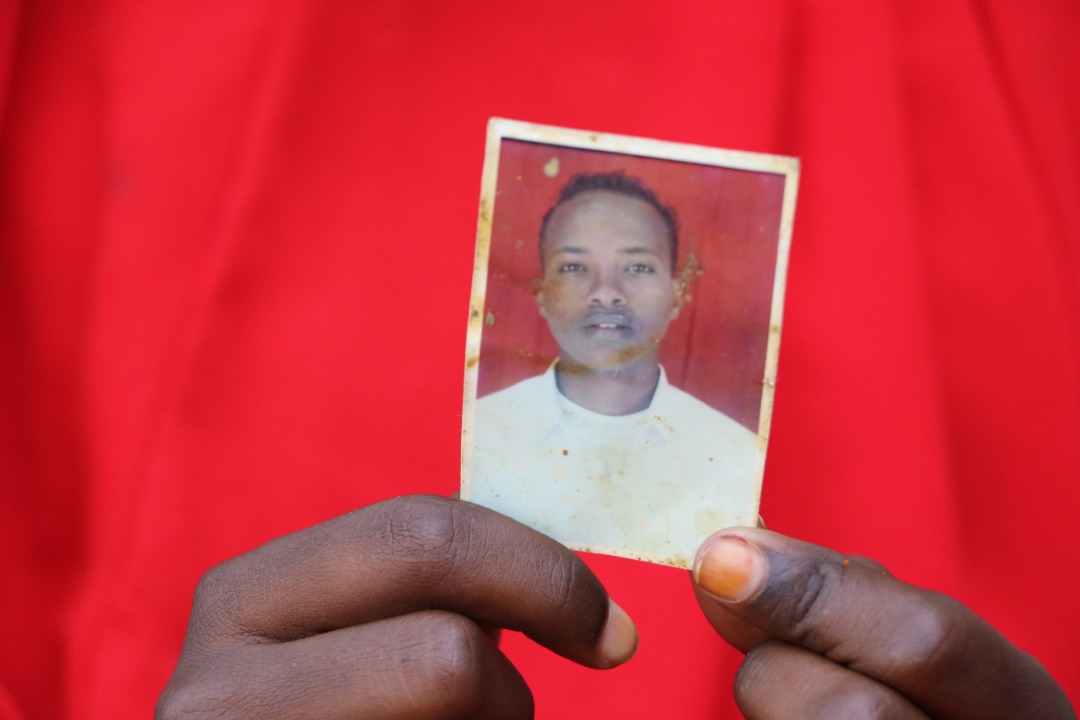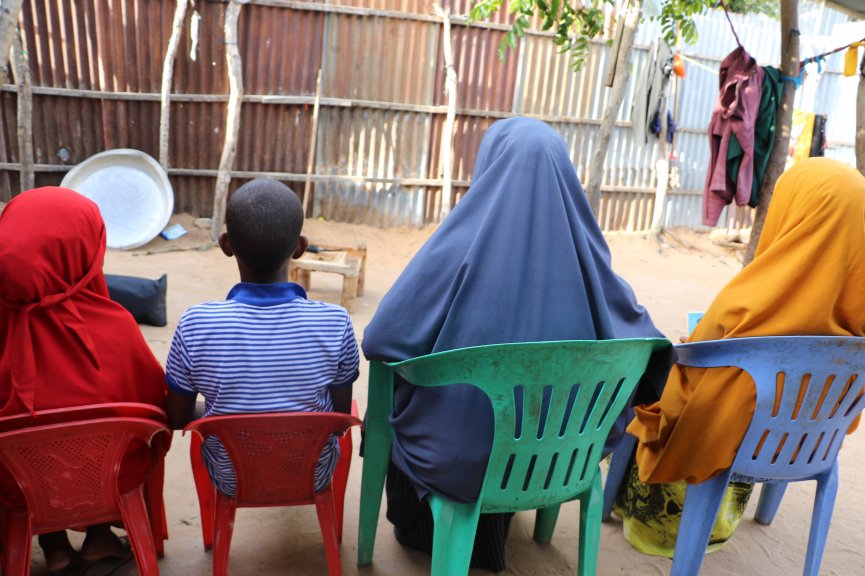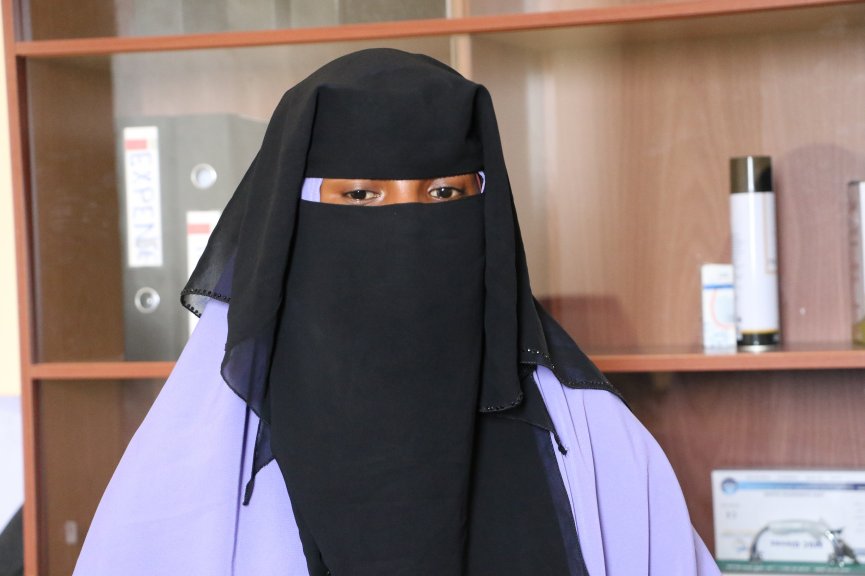
Hopes dashed for families of murdered Somali journalists
|
09 July 2020 22:34

MOGADISHU (Horn Observer) - "We are suffering until today. No justice. Nobody investigated the murder of Hassan. We are hopeless. We need support. Following the murder of my husband I cannot sustain my children," says Habiba Adan Ahmed, 35-year-old wife of slain Somali journalist, Hassan Osman Abdi --popularly known as "Fantastic".


The radio Shabelle director, Hassan Osman Abdi,
was a fearless and committed journalist. At the age of 29 he earned his
reputation as an investigative reporter in the Somali capital Mogadishu
in an era of al-Shabaab control -a militant insurgency that has attempted to overtake the country for nearly a decade.
According to colleagues, Hassan
stood for the truth, a rare commodity in Somalia. For exposing graft,
Hassan was frequently threatened by those who disliked his reporting.
On the evening of January 28, 2012 Hassan was returning home. Unidentified men wearing Somalia’s military uniform shot him several times as he walked home. Local residents rushed him to hospital where he died
from the bullet wounds. According to colleagues and family, the
perpetrators may have been incensed by the journalist’s report exposing senior government officials to a corruption scandal involving Mogadishu’s seaport.
Somalia remains one of world’s
most dangerous places to be a journalist. Journalists not only face
endless violations and assassinations –their perpetrators almost always
get away with it, ensuring the vicious trend continues. According to
data compiled by the Committee to Protect Journalists (CPJ), 69 journalists — including two in 2020— were murdered in Somalia since 1992 and almost
all of these murders were committed with impunity without genuine
investigations taking place. As CPJ’s 2019 Global Impunity Index found, Somalia is the world’s worst country for the fifth year in a row
when it comes to failing to prosecute journalist murderers.
- REFUSED TO ADHERE SUMMONS-
Hassan had reported to police
that there were people tracking him and that he feared for his life,
according to his wife, Habiba Adan and Hassan’s colleagues. Only
recently it was revealed that one week prior to his assassination, the
government attorney general’s office had issued a verbal summons
following Hassan’s report exposing the Mogadishu seaport graft. Hassan has refused to adhere to this summons and stuck to his assignment.
"The summon was intended to
intimidate and to distract Hassan from reporting but Hassan was
unbending. He continued to expose the corrupt practices at the port and
that is why he was targeted,” Hassan Wali Abukar, a colleague, said.

After his death, nobody bothered to investigate the murder.
With her three children aged 14,
12 and 9, Habiba says that despite recording her statement on the night
of her husband’s murder, she has never been updated by authorities or
informed of any suspects. Until today she feels numb, shocked, and
fearful, trusting authorities and others less and less.
"He was everything to me— A
husband who cared and loved for his family and a journalist who loved
his people and country. Everyday I am in mourning,” the widowed wife
says pushing her tears back and requested to take a break from the
interview.
One day after Hassan’s
assassination, the police arrested two men held for the killing. They
were initially interrogated at the Criminal Investigations Department
(CID) in Mogadishu and were later transferred to the central prison. The
police neither opened an investigation, nor did they inform the family
about the suspects. The family has learnt that the suspects were freed five months later on June 7, 2012. However, according to the family,
it is widely believed that the suspects were released on bribes to evade
justice.
"We don’t know why the suspects
were freed and who released them,” said Mohamed Osman Abdi, the elder
brother to Hassan, who is also a journalist at the state-run national
news agency. "When such murder is committed, you can expect to get
justice. The case should have been investigated properly; perpetrators
should have been taken to the court. All court procedures should have
been followed. That way justice should have eventually prevailed.”
As a lack of accountability
takes hold in the country, the Somali government insists that there are
no simple solutions to increase safety for journalists, and the
situation calls for a comprehensive response. According to Adan Isak,
the deputy minister of information of the Somali Federal Government,
lack of institutional capacity to conduct independent inquiries and the
threat posed by the militant group are among the main challenges the
government faces.
"Somalia is the only country in
Africa where nearly 1000 civilians were killed in a single incident and
journalists are among those. But we also believe that journalists are
targeted due to their role and the truth they report,” Mr. Isak said.
For the first time, the deputy
minister Mr. Isak declares the government’s intention to open full
investigations into the cases of all journalists murdered in the line of
their duty. Hassan’s case is among of those, he adds.
"Hassan and more than 10 other
journalists who were unjustly killed will be part of the
investigations,” deputy minister Isak states.
But the local journalist rights
groups blame the Somali government for its insouciant stance towards the
threats and violence Somali journalists face on a daily basis. Without
addressing the issue of impunity towards journalists’ murders, the
rights groups say, the problem will persist. So far this year two
journalists have been killed. None of the murders were properly
investigated.
- ABDIWALI'S MURDER-
Just 30 km (18 miles) from Mogadishu is the town Afgoye. On February 16, gunmen shot dead freelance journalist, Abdiwali Ali Hassan, 25, while on his way home.
"He was shot several times in
the head and chest. The most terrible was one shot that hit the
cheekbone and destroyed his teeth,” says Luul Abdi Mire, the wife of
Abdiwali and mother of his two young children: a son and daughter.

"I know that being a journalist
in Somalia poses great risks. Many journalists were murdered but for
Abdiwali, I never feared for him,” Luul said. "I never thought that he
would be killed in Afgoye— his hometown and he was not involved in any
sensitive reporting that could have cause trouble for him.”
The near total impunity enjoyed
by the killers of Somali journalists allows them to attack scribes for
the slightest infractions.
Journalists now work warily,
cognizant of the risks involved –unaware what report may trigger peril
and self-censor as a means of survival.
"There is no specific threat
that I can imagine caused Abdiwali’s murder. Impunity is giving more
opportunity for the killers to do more attacks against journalists,”
says Abdiwali’s former colleague and journalist Hussein Abdulle.
In a statement issued one day after Abdiwali’s death, the Somali minister of
information, Mohamed Abdi Hayir Mareye sent his condolences to the
family and said that the government would seek the culprits of the
journalist’s murder.
Like Hassan’s case, four months
after Abdiwali’s death, there has still been no independent criminal
investigation. "Justice is for God. I am only waiting for God to serve
justice for my family. I am not anticipating anybody else to do justice
for us. Now we are hopeless. We are suffering because of his death. Our
hopes dashed,” concludes Luul.
Somali government’s inability to
investigate and punish the murderers of the messengers has not only
increased the targeted assassinations against the press, but also fades
hopes for justice from the victim’s families.
Nine years later, Hassan’s family and colleagues are yet to witness justice served. They say their hopes dashed.
"We have the right to know how
Hassan was murdered and who did it. We are still lingering for justice.
That is all what we want,” says Hassan Wali Abukar.
-
This story is part of an investigative grant report supported by the Justice for Journalists Fund (JFJ).
Leave a comment
- Popular
- Rated
- Commented
04/11/2021 - 11:05:02
28/05/2024 - 15:44:10
02/12/2021 - 11:34:53
01/03/2021 - 09:00:37
Opinions
18/05/2025 - 16:26:37
15/05/2025 - 20:16:04
Politics
05/06/2025 - 13:42:50
Terror Watch
07/06/2025 - 21:36:45
Press Releases
05/06/2025 - 12:21:21
02/06/2025 - 21:29:33
 0
0 




































Hopes dashed for families of murdered Somali journalists
MOGADISHU (Horn Observer) - "We are suffering until today. No justice. Nobody investigated the murder of Hassan. We are hopeless. We need support. Following the murder of my husband I cannot sustain my children," says Habiba Adan Ahmed, 35-